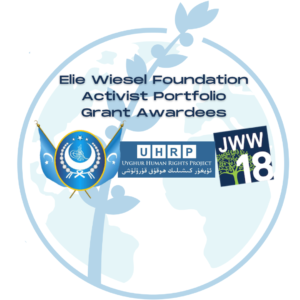Two days into our trip, we finally have internet service. Amazing that in the bustling city of Kigali, Rwanda, we cannot get connected, but in Bukavu, Democratic Republic of Congo, a city with few paved roads and limited utilities, we connect right away.
I traveled from Los Angeles to Kigali with one of my fellow JWW Board members, Diana Buckhantz, and amazingly, half way around the world and on different flights, we meet up with our co-founder, Janice Kamenir-Reznik, at the same time. Diana has been to this area of Congo twice before and Janice three times. I am definitely the new kid on the block, and I am inundated with so many emotions, questions and insecurities, and there is no turning back.
As I board the plane from Amsterdam to Kigali, I pick up an International Herald Tribune. Headline article and photo is about Italy’s newly appointed black political official, Cecile Kyenge, born in the Democratic Republic of Congo. Kyenge is not only Italy’s first black government official, she is also a woman. Many Italians are up in arms with this appointment, with many racist and xenophobic slurs having been reported. The most atrocious comment called for Ms. Kyenge to be “raped, so she could understand what victims felt like.” It is hard for me to digest this as I am going to the war torn area of Congo, Kyenge’s birthplace, where violent rapes are so pervasive that they have been the cause of the dismantling of the entire social structure of the Lake Kivu region.
Then, in Kigali, we stay one night at Hotel Rwanda (Hotel des Mille Collines) now totally refurbished and redecorated after the 1994 genocide. En route to the border, the in-flight magazine on the short flight from Kigali to Kamembe, features a story on the memorial services commemorating the Rwanda Genocide. To mark this 19 year anniversary, Rwanda President Kagame states, “Remembrance of the genocide is an obligation for every Rwandan. It also falls on Rwanda to teach and pass on that responsibility to the youth so that they, in turn, can pass it on to successive generations.” This is part of our Jewish calling and part of the Jewish World Watch mission. Genocide and war are right before me wherever I go, whatever I read.
As I cross the border from Rwanda into Congo with trepidation and yet total trust in our on-the-ground partners, Topher from the International Medical Corps and Amani from ABFEK (Actions pour le Bien Etre de la Femme et de L’Enfant en Kivu), I wonder “Where am I going and what am I doing here?”
The land is unbelievably beautiful. Kigali is called “the city of a thousand hills,” and Bukavu rests on vast Lake Kivu with lush vegetation everywhere. It is hard at first glance to understand how this area can be so devastated by war and conflict, yet the Congolese people seem to be filled with an incredible vitality to survive the atrocities that permeate the entire region. All of these paradoxes make my head spin as I take this all in on day one in Bukavu.
I am definitely in a different world and on the biggest adventure of my life.


